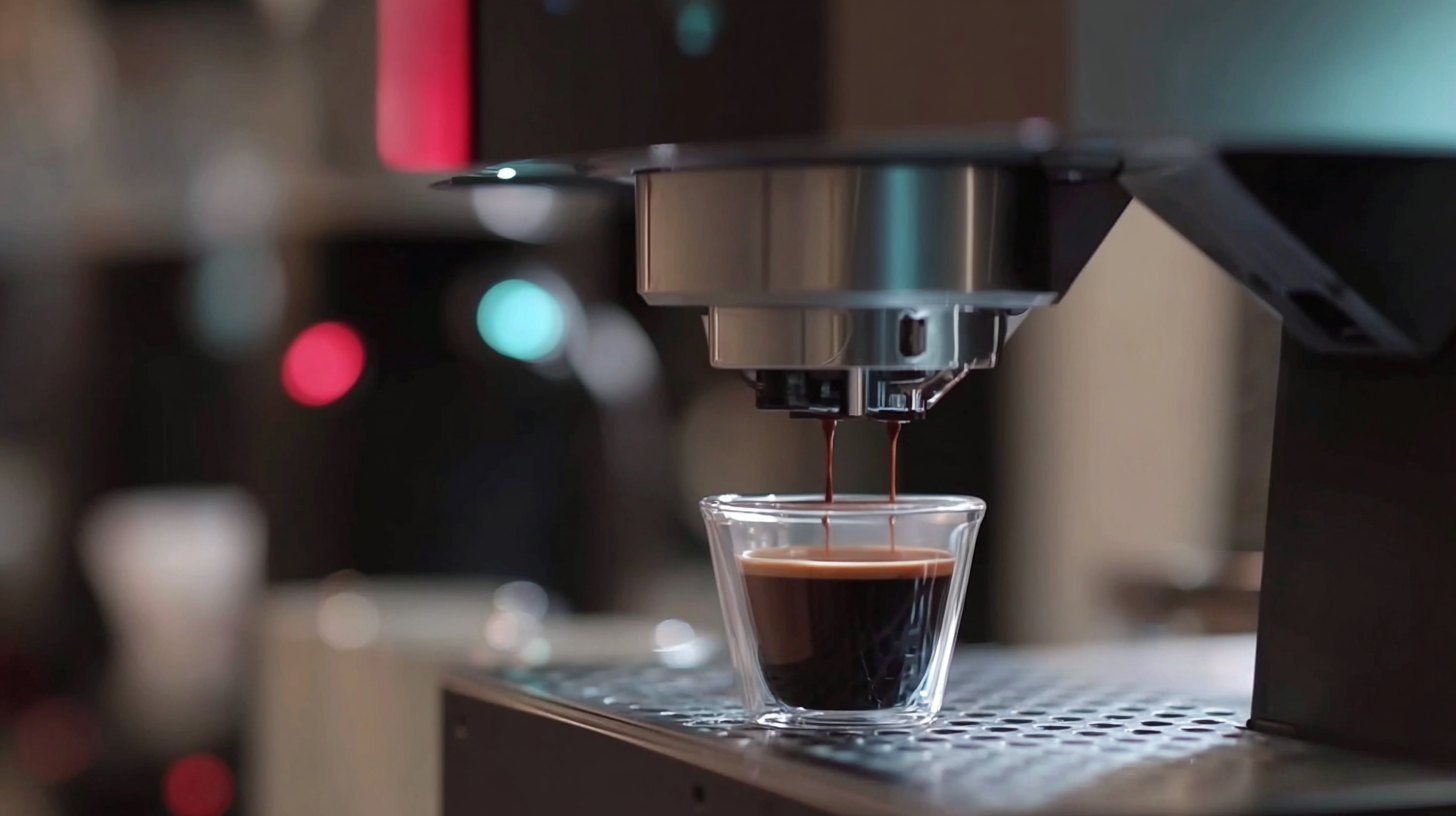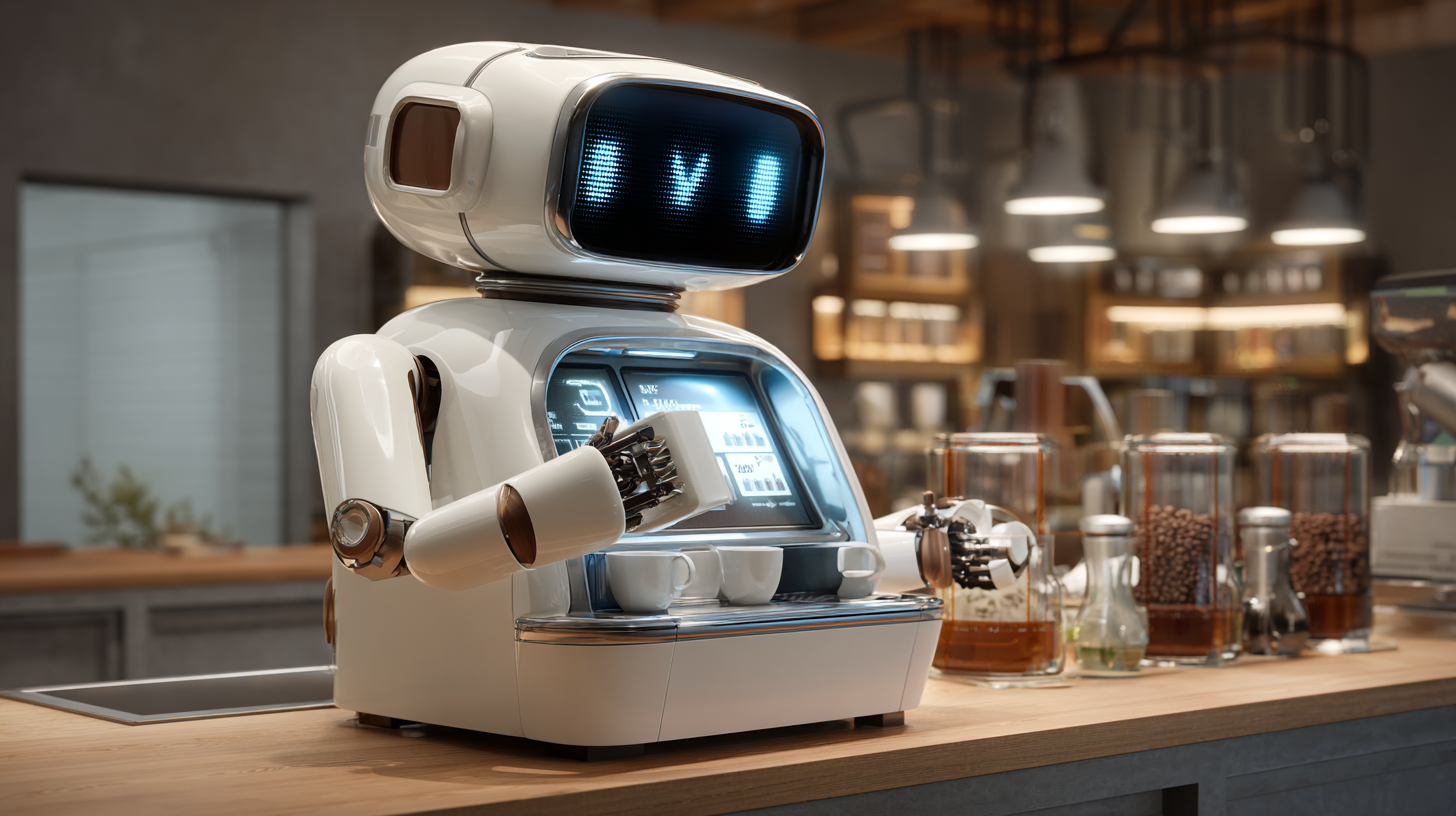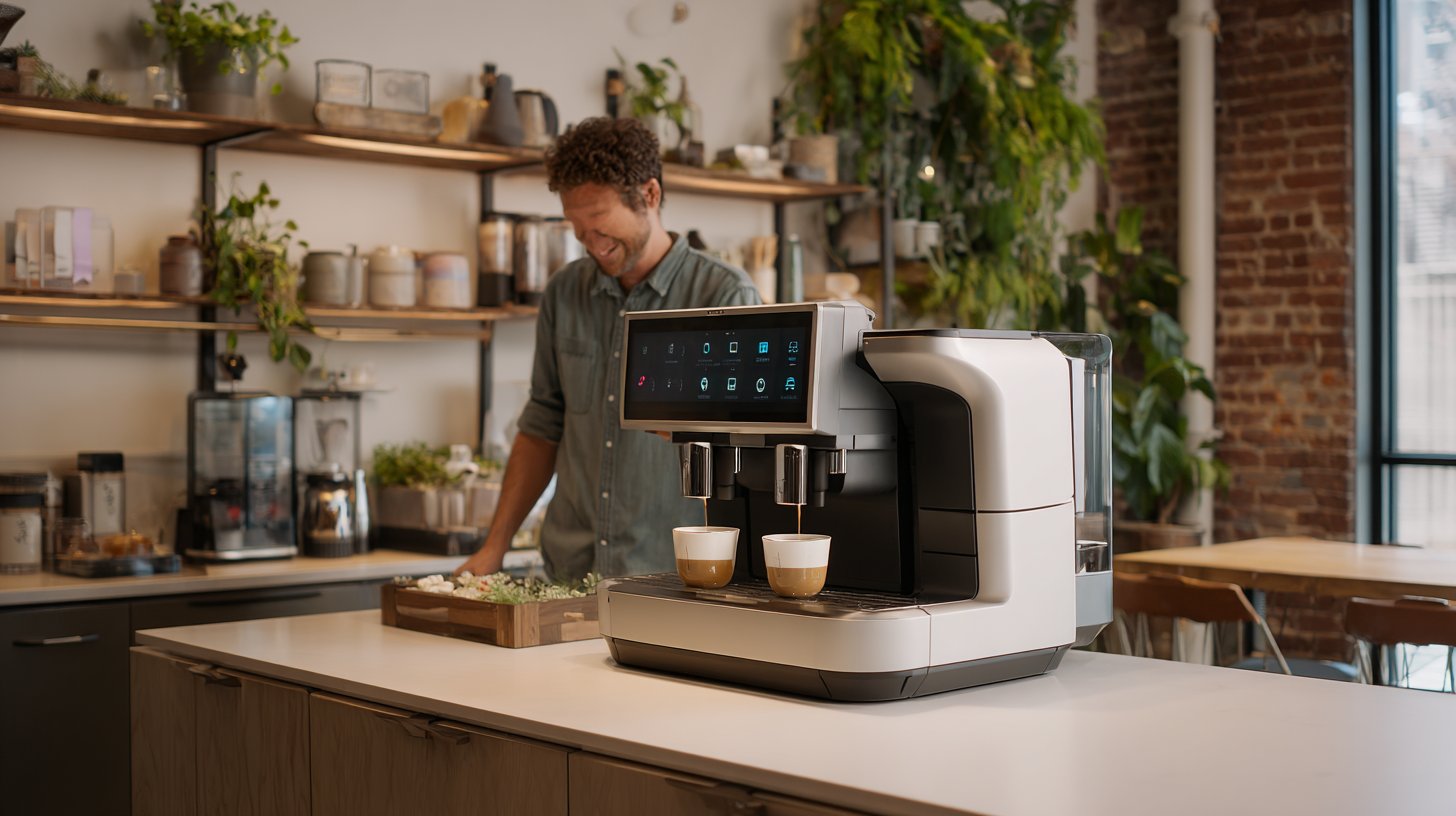Embracing the Future of 2025 How Smart Coffee Robots Will Transform the Barista Industry
As we approach 2025, the coffee industry is poised for a significant transformation, driven by the emergence of innovative technologies such as the coffee robot barista. According to a recent market analysis by ResearchAndMarkets, the global coffee vending machines market is projected to grow at a CAGR of 6.3%, reaching $2.8 billion by 2025. This shift not only highlights the increasing demand for convenience but also underscores the potential for automation in the coffee sector. The integration of smart coffee robots into cafes and coffee shops promises to enhance efficiency, consistency, and customer experience, thus revolutionizing traditional barista roles. By streamlining the coffee-making process and delivering perfectly crafted beverages with precision, coffee robot baristas are set to redefine the way we enjoy our favorite brews while addressing labor challenges faced by the industry.

The Rise of Smart Coffee Robots: A New Era in the Barista Industry
The barista industry is on the brink of a transformative revolution, largely driven by the rise of smart coffee robots. These advanced machines are no longer confined to functions of mere automation; they are becoming capable of complex interactions and craftsmanship that rival human baristas. According to a recent market analysis, the global coffee machine market is projected to reach $9.5 billion by 2025, significantly aided by innovations in robotics and AI technologies. Smart coffee robots are designed to brew the perfect cup with precision, ensuring consistency and quality, which is crucial in an increasingly competitive market.
Recent events, such as the 2024 China Humanoid Robot Developers Conference, emphasize the growing capabilities of humanoid robots. Such robots can perform tasks ranging from brewing coffee to engaging customers with personalized service. As highlighted in industry reports, the demand for automated solutions within coffee establishments is set to rise by 30% over the next three years. This trend showcases an emerging opportunity for coffee businesses to enhance operational efficiency while appealing to tech-savvy consumers seeking unique coffee experiences. Embracing these innovations positions the barista industry to not only meet but exceed the expectations of the coffee-loving public in a near-future dominated by intelligent automation.

Key Features of Smart Coffee Robots: Efficiency and Precision in Brewing
As we look towards 2025, the coffee industry is on the brink of a major transformation with the introduction of smart coffee robots. These intelligent machines are designed to enhance brewing efficiency and deliver unparalleled precision, fundamentally changing the role of baristas. Equipped with advanced algorithms and sensors, smart coffee robots can brew the perfect cup of coffee every time, ensuring consistency in flavor and quality that even the most skilled baristas might find challenging to replicate.
One of the standout features of smart coffee robots is their ability to adapt to individual preferences. By learning from user interactions and feedback, these robots can customize brewing variables such as temperature, grind size, and extraction time. This personalized touch not only enhances the customer experience but also allows coffee shops to offer a wide range of options without compromising on quality. For baristas looking to embrace this technology, it’s crucial to familiarize themselves with machine operations and programming, enabling them to bridge the gap between technology and traditional brewing techniques.
For those considering the integration of smart coffee robots into their operations, here are a couple of tips: first, invest time in training staff on the technology to ensure they can effectively manage and troubleshoot the robots. Second, encourage customer interaction with the robots, as this not only enhances customer engagement but also helps baristas collect valuable insights on consumer preferences to further refine their offerings.

Case Studies: Successful Integrations of Coffee Robots in Cafes
As the barista industry looks towards 2025, the integration of smart coffee robots is becoming increasingly prominent. Case studies from various cafes demonstrate how these robotic systems enhance operational efficiency and customer experience. For instance, a recent report showed that cafes utilizing coffee robots can increase beverage output by up to 30%, thereby decreasing wait times and boosting customer satisfaction. This shift not only optimizes service but also enables human baristas to focus on creative and high-touch elements of their craft.
Several cafes have successfully adopted coffee robots, showcasing their ability to customize drinks with precision and consistency, a critical factor as consumer preferences become more sophisticated. Data indicates that 65% of customers are willing to pay a premium for personalized beverage options. Additionally, research highlights that cafes incorporating AI technology, including coffee robots, have seen a reduction in operational costs by 20%, emphasizing the financial viability of such integrations. This technological embrace signals a significant transformation in the industry, aligning with the evolving demands of a modern customer base.
Embracing the Future of 2025: Coffee Robot Integration in Cafes
Impact on Employment: The Human Factor in a Robotic Barista World
As the coffee industry transitions into 2025, the integration of smart coffee robots poses significant implications for employment in the barista sector. According to a recent report by the International Coffee Organization, the global coffee market is projected to grow to $200 billion by 2025, pushing the demand for efficiency and speed in service. This transition towards automation in coffee preparation might lead to a shift in roles within cafes, where traditional baristas may find themselves supplementing the work of robots rather than being replaced entirely.
The International Labor Organization has noted that while automation can enhance productivity, it also prompts concerns regarding job displacement. An estimated 45% of jobs in the coffee sector could be at risk of automation over the next decade. However, it is essential to recognize that the human touch in crafting the perfect cup of coffee remains irreplaceable. Baristas do more than just brew coffee; they create experiences and build customer relationships. As we embrace smart coffee robots, the industry may evolve into a hybrid model, where skilled baristas focus on customer engagement and complex beverage crafting while robots handle repetitive tasks, ultimately enhancing the overall coffee experience.
Future Trends: Innovations to Expect in Coffee Robotics by 2025
As we move toward 2025, the coffee industry is on the cusp of a significant transformation driven by advancements in robotics. A recent research report by Market Research Future predicts that the global coffee robotics market will exceed $1.8 billion by 2025, indicating a growing acceptance and integration of automated solutions in cafes and coffee shops. With smart coffee robots equipped with artificial intelligence, businesses can expect precise brewing methods and consistency that can elevate the coffee experience for consumers. The ability of these robots to learn and adapt to customer preferences will provide a personalized touch that could rival traditional baristas.
Innovations in coffee robotics are set to redefine operational efficiency and customer engagement. For instance, coffee robots like Bbot are already streamlining the service process by automating orders and payments, minimizing wait times significantly. According to a report from Allied Market Research, establishments employing robotic baristas can see a 30% increase in service speed, enhancing customer satisfaction. Furthermore, energy-efficient designs and sustainable practices in newer models align with environmental trends that consumers increasingly value. As technology continues to evolve, the integration of smart coffee robots promises not only to enhance the brewing process but also to reshape the entire barista industry landscape.
Embracing the Future of 2025: How Smart Coffee Robots Will Transform the Barista Industry
| Feature | Description | Expected Impact |
|---|---|---|
| AI-Powered Brewing | Robots with machine learning capabilities to customize brewing preferences based on individual taste. | Increased customer satisfaction through personalized coffee experiences. |
| Automated Barista | Fully automated machines to prepare a variety of coffee beverages with minimal human intervention. | Reduced labor costs and enhanced efficiency in coffee preparation. |
| Remote Order Management | Integration with mobile apps for remote ordering and payments. | Streamlined service and increased sales through convenience. |
| Smart Inventory Management | Robots equipped with sensors to track supply levels and reorder automatically. | Minimized waste and consistent product availability. |
| Enhanced Customer Interaction | Robots that can engage with customers and provide recommendations using natural language processing. | Better customer engagement and improved upselling opportunities. |
